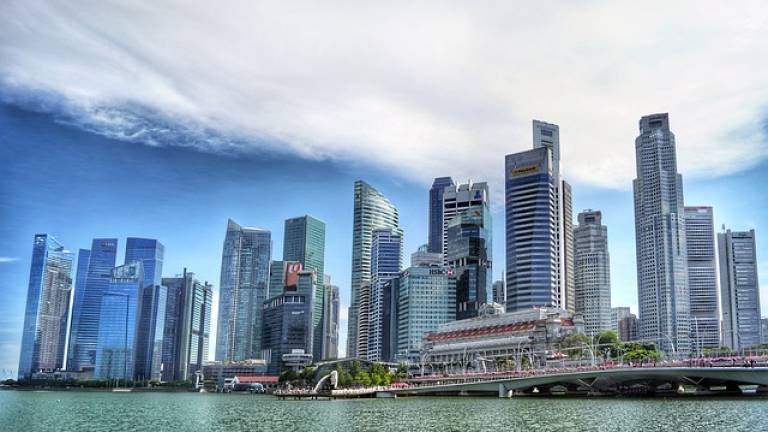PETALING JAYA: With Singapore going into a recession that is long and intense, Malaysia’s road to recovery will be tough as the two countries are like economic Siamese twins.
The island republic is looking at its worst recession in recent memory as its trade and investment, the lifeblood of an open economy, have been choked by the Covid-19 pandemic.
Malaysia and Singapore are dependent on each other for development and prosperity, former World Bank economist Lim Teck Ghee told theSun.
“Since separation in 1965, the economic linkages have grown significantly,” he said yesterday.
“In 2018, Singapore was Malaysia’s foremost trading partner. According to World Bank figures, exports to Singapore amounted to US$34 billion (RM146.12 billion) that year.”
“This figure is more than that of our exports to China or the US. Malaysia in turn imported US$25.47 billion from Singapore.
“But it is not only trade that binds the two countries. People-to-people movement and capital and worker flows are also deeply rooted and extremely substantial.”
Lim, a former UN regional adviser, said the two countries together are an integral part of the regional and global production chain that has been disrupted by the pandemic.
The speed at which the chain can be restored will depend on how well the two countries can work together, he pointed out.
“While it is understandable that each country will look for domestic solutions to counter the economic downturn, it is important that their mitigation measures are not at each other’s expense,” Lim said.
“Close coordination is especially needed on the key issue of the plight of Malaysian workers based in Singapore and in the other networked sectors such as the manufacturing, hospitality and travel industries.”
Lim said the future economic scenario may not simply be that of short-term job losses and short-run structural change.
“It is likely to be of major economic dislocations and changes in which a higher level of economic statesmanship and cooperation are required from both countries if they both are to survive this crisis better,” he added.
Another economist said while the pandemic has had a severe impact on countries globally, it is unlikely to lead to lasting structural changes to Malaysia’s economy.
Prof Dr Hoo Ke Ping said economies worldwide are expected to rebound and recover sooner rather than later, and that this would largely hinge on the development of a vaccine.
“I would say we will return to almost a state of normalcy by the end of next year. This includes our economy, share market and social behaviour.”
“If we continue to have rapid mass-testing, treat patients with proven existing drugs, and finally have the desired vaccine to fight the virus, then I don’t believe that we will have permanent structural changes to the economy.”
He was responding to Singapore Prime Minister Lee Hsien Loong’s Labour Day statement that the city state must brace itself for lasting structural changes to its service-oriented economy in the aftermath of the pandemic.
Hoo noted that vaccine developers are confident that it could be available by year-end, although it could take another year to get most of the global population vaccinated.
In the short-term, before the vaccine reaches the majority of the people, priority should be given to those who travel abroad, which he said make up about 15% of the population worldwide.
“During this period, if we (Malaysia) continue to do rapid tests and properly screen those who enter our country, coupled with the fact that the inbound travellers would have already been vaccinated, then there is less worry of imported Covid-19 cases,” he said.
Hoo pointed out that this would rapidly revive the country’s tourism, described as the sector most affected by the global pandemic.
He added the resumption of operations of most businesses nationwide beginning today would also help companies weather the crisis.
Read the story on our iPaper:
Cooperation required between Malaysia and Singapore to ensure both overcome economic crisis better









